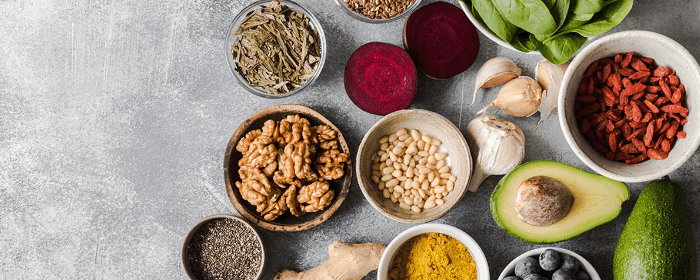
by admin | Jul 7, 2023 | Health Awareness
Certain foods have the potential to cause inflammation in the body. While the response to food can vary from person to person, here are some common foods that have been associated with inflammation:
Sugar: Foods high in added sugars, such as soda, candies, pastries, and sweetened beverages, can promote inflammation and contribute to various health issues.
Processed meats: Processed meats like sausages, hot dogs, and deli meats often contain high amounts of unhealthy fats, sodium, and additives that can trigger inflammation.
Trans fats: Found in many processed and fried foods, trans fats can increase inflammation and negatively impact heart health. They are commonly found in baked goods, margarine, and fast-food items.
Vegetable oils: Certain vegetable oils, such as soybean, corn, and sunflower oils, are high in omega-6 fatty acids. While our bodies need some omega-6 fats, an excessive intake, especially when the ratio of omega-6 to omega-3 fats is imbalanced, can promote inflammation.
Refined carbohydrates: Refined grains like white bread, white rice, and pastries undergo processing that removes their fiber and nutrients. They can cause a rapid spike in blood sugar levels, leading to increased inflammation.
Alcohol: Excessive alcohol consumption can disrupt the normal function of the gut and liver, leading to inflammation. It can also contribute to nutrient deficiencies that may worsen inflammation.
High-sodium foods: Foods that are high in sodium, such as processed snacks, canned soups, and fast food, can promote inflammation and contribute to water retention.
Artificial additives: Certain food additives, such as artificial sweeteners, food colorings, and preservatives, have been linked to inflammation and other health issues in some individuals.
It’s important to note that while these foods have the potential to cause inflammation, the degree of inflammation and its impact can vary among individuals. It’s a good idea to listen to your body and pay attention to how different foods make you feel. A balanced and varied diet, rich in whole foods like fruits, vegetables, lean proteins, and healthy fats, can help reduce inflammation and promote overall health. Consulting with a healthcare professional or a registered dietitian can provide personalized recommendations based on your specific needs and health goals.
What Types of Foods Are Part of an Anti-Inflammatory Diet?
An anti-inflammatory diet focuses on consuming foods that can help reduce inflammation in the body. While individual needs may vary, here are some types of foods that are generally considered beneficial in an anti-inflammatory diet:
Fruits and vegetables: These are rich in antioxidants, vitamins, minerals, and fiber. Include a variety of colorful fruits and vegetables, such as berries, leafy greens, broccoli, tomatoes, and bell peppers.
Healthy fats: Opt for sources of healthy fats, including avocados, nuts (such as almonds and walnuts), seeds (such as flaxseeds and chia seeds), and fatty fish (such as salmon, mackerel, and sardines) that provide omega-3 fatty acids.
Whole grains: Choose whole grains like brown rice, quinoa, oats, and whole wheat bread, which are higher in fiber and nutrients compared to refined grains.
Legumes: Incorporate beans, lentils, chickpeas, and other legumes into your meals. They are excellent sources of plant-based protein, fiber, and beneficial phytonutrients.
Herbs and spices: Turmeric, ginger, garlic, cinnamon, and other herbs and spices are known for their anti-inflammatory properties. They can be used to add flavor to your dishes and provide additional health benefits.
Healthy proteins: Include lean sources of protein like skinless poultry, tofu, tempeh, and low-mercury fish. Plant-based protein options can also be derived from legumes, nuts, and seeds.
Fermented foods: Foods like yogurt, kefir, sauerkraut, and kimchi contain beneficial probiotics that support gut health and may have anti-inflammatory effects.
Green tea: Green tea is rich in antioxidants and has been associated with reduced inflammation. It can be a good alternative to sugary or caffeinated beverages.
Extra virgin olive oil: This oil contains monounsaturated fats and compounds with anti-inflammatory properties. It can be used for cooking or as a dressing for salads.
Water: Staying hydrated is essential for overall health and can help maintain proper bodily functions.
Remember, an anti-inflammatory diet is not about focusing on specific foods alone but rather adopting a balanced approach that emphasizes whole, unprocessed foods and minimizes the intake of processed and sugary foods. It’s also important to consider any individual dietary restrictions or health conditions and consult with a healthcare professional or a registered dietitian for personalized advice.

by admin | May 26, 2023 | Health Awareness, Chronic Pain
Many health conditions and lifestyle factors lead to ongoing inflammation within the body. When you have widespread inflammation, it can lead to chronic pain, aches, and other health concerns.
If you want to lower inflammation and feel better overall, you may benefit from an anti-inflammatory diet. Learn more about the anti-inflammatory diet and what it includes below.
The Anti-Inflammatory Diet
While certain foods can trigger inflammation, others can reduce it. The anti-inflammatory diet limits inflammatory triggers and focuses primarily on foods that can lower inflammation.
Foods that Trigger Inflammation
Anti-inflammatory diets limit the following foods that are considered inflammation triggers:
- Red meat
- Processed foods
- Sugar
- Fried foods
- White bread
- Cookies, candy, and ice cream
- High sodium foods
- Alcohol
When these foods are highly restricted or altogether eliminated, it can lead to lower inflammation levels throughout the body.
Foods that Reduce Inflammation
While the anti-inflammatory diet restricts foods that are triggered, it calls for an increase in foods that can reduce inflammation. These foods include:
- Oily fish (tuna, salmon)
- Berries
- Green leafy vegetables
- Nuts and seeds
- Beans
- Olive oil
- Probiotics
- Tea
These anti-inflammatory foods are high in antioxidants and other properties that can decrease inflammation. When your diet consists mostly of these foods, you can see a significant reduction in widespread inflammation, which may lead to a resolution of chronic pain and other symptoms.
Starting an Anti-Inflammatory Diet
If you struggle with chronic inflammation and want to try the anti-inflammatory diet, always speak with your medical team beforehand. Making major dietary changes is very impactful and should be discussed with your doctor in advance.
It is important to make sure that the anti-inflammatory diet is a healthy fit for any underlying conditions you already have. It is also important to ensure you are healthy enough to make a major dietary change.

by admin | Nov 9, 2022 | Health Awareness
Inflammation is your body’s response to injuries, damage, and certain health conditions. If something is wrong with a certain part of your body, you will likely experience some inflammation.
Usually, inflammation is a positive sign that you are healing and recovering. However, excessive inflammation can cause long-term health problems. Starting an anti-inflammatory diet is key to fighting off problematic health conditions.
Why Inflammation Matters
Without inflammation, your body would not be able to repair itself when it needs to. But with too much inflammation, you are at risk for chronic health problems. Your tissues and cells can become damaged from too much inflammation over time.
Your diet can add to or alleviate the inflammation you experience in your body. If you suffer from an inflammatory disorder, it is even more important to follow an anti-inflammatory diet to control your symptoms.
Some common inflammatory disorders include irritable bowel syndrome (IBS), autoimmune diseases, and chronic fatigue syndrome (CFS). If you have been diagnosed with one of these conditions, consider an anti-inflammatory diet to feel better and improve your overall well-being.
Foods That Fight Inflammation
Certain foods have chemical compounds that naturally modulate your body’s inflammatory responses. To fight against excessive inflammation, try adding some anti-inflammatory foods to your weekly menu. Incorporating even a few of these foods could make a difference in your overall health.
Try adding these foods and spices to your diet:
- Turmeric
- Peppers
- Fish
- Olive oil
- Dark chocolate
- Nuts
- Leafy greens (spinach, kale, etc.)
- Eggs
- Chicken
- Turkey
Anti-inflammatory foods will help you maintain your health and prevent inflammation from damaging your healthy cells and tissues. With less inflammation in your body, you will likely feel a lot better.
Foods to Avoid
There are plenty of delicious, healthy foods that combat inflammation. Unfortunately, there are a few ingredients to avoid as well. Inflammatory ingredients and foods can give you more problems and worsen your symptoms.
Avoid the following ingredients to control inflammation:
- Refined sugars
- Artificial sweeteners
- Simple carbohydrates
- Processed meats
- Sodas
- Sweets, pastries, and breads
- Fried food
- Highly processed cheeses
These foods can be harmful to your health. Avoid them, when possible, to prevent and treat inflammation.
Discover comprehensive testing to see where you are insufficient and deficient to optimize your health. For more health awareness blogs, please visit www.stemedix.com/blog.

by admin | Nov 21, 2019 | Chronic Pain, Mesenchymal Stem Cells, Stem Cell Research, Stem Cell Therapy
A review in the Journal of Stem Cell Research & Therapy has summarized an array of studies that demonstrate that a specific type of stem cell – the mesenchymal stem cell – may be beneficial as a therapeutic approach to chronic pain. The authors point to the huge burden of chronic pain. It is estimated that more than 115 people suffer from the condition, which is more than those who suffer from diabetes, stroke, cancer, and coronary heart disease combined. Many medical professionals are pondering the question of how stem cells may help those with chronic pain.
Chronic pain is also associated with significant losses in productivity. Given how extreme the burden of chronic pain has become, the National Institute of Medicine has suggested that finding effective ways to alleviate chronic pain should become a priority for the nation.
Regenerative medicine has offered an effective way to treat a variety of injuries and diseases, including some that are related to chronic pain. As the term “regenerative medicine” implies, much of the research into the clinical effects of stem cells have shown that they lead to beneficial outcomes by regenerating damaged tissue by replacing that tissue with new cells.
This new review looks at the potential of mesenchymal stem cells to specifically improve chronic pain through the ability of the cells to suppress inflammation. Given that inflammation is a common characteristic of conditions associated with chronic pain, a strategy that addresses this phenomenon could represent an effective way to help those with chronic pain that comes from things like degenerative disc disease and osteoarthritis.
The current approaches to chronic pain are limited in their ability to reduce or control pain, so there is a great need to develop more effective therapies. Research thus far into the potential impact of mesenchymal stem cells on chronic pain has provided promising results regarding effectiveness and safety. Specifically, these stem cells have not been associated with adverse side effects, they lead to the development and growth of healthy tissue, and they appear to provide pain relief. Future research will help to clarify the mechanisms by which mesenchymal stem cells may confer their benefits to those with chronic pain and provide new insights into how can best use these cells to help chronic pain sufferers.
Reference: Waterman, R.S. & Betancourt, A.M. (2011). Treating chronic pain with mesenchymal stem cells: A therapeutic approach worthy of continued investigation. Journal of Stem Cell Research & Therapy, S2, 1-5.

by admin | Sep 10, 2018 | Health Awareness
Many chronic conditions, including arthritis, are characterized by chronic inflammation. While inflammation is the body’s natural immune response to healing damage, chronic inflammation takes place even when there is no injury present. It plays a role in a host of diseases, including life-threatening conditions such as heart disease and diabetes.
Researchers suspect chronic inflammation is caused by a combination of contributing factors, including family history and diet. Interestingly, recent findings are suggesting that just as certain agents may promote an inflammatory response, others may also help to block it.
Krill oil, in particular, is one dietary source which may have the ability to neutralize pro-inflammatory activity. The oil is rich in omega-3, a natural compound with anti-inflammatory properties. While other types of fish oil share similar properties, krill oil, in particular, appears to have a greater potential to promote lipid catabolism, a process involved in the breaking down of fat. Because there is a known interplay between lipid catabolism and inflammation, krill oil’s ability to stimulate the process better than other supplements is noteworthy.
Research has shown that krill oil can reduce arthritis pain and intestinal inflammation. Individuals suffering from arthritic pain saw a reduction of inflammation after one month of taking 300 mg of krill oil daily. When taken in combination with hyaluronic acid and astaxanthin, additional anti-inflammatory compounds, arthritis sufferers reported pain levels were reduced by half within three months, and 63% of study participants reported being entirely pain-free.
If you think krill oil supplements could help to alleviate your arthritis pain or minimize inflammation from another chronic condition, speak to your physician. As with any vitamins, it’s a good idea to seek input from medical professionals before taking krill oil or other anti-inflammatory supplements to assess possible interactions and receive guidance on recommended dosages.






 St. Petersburg, Florida
St. Petersburg, Florida
